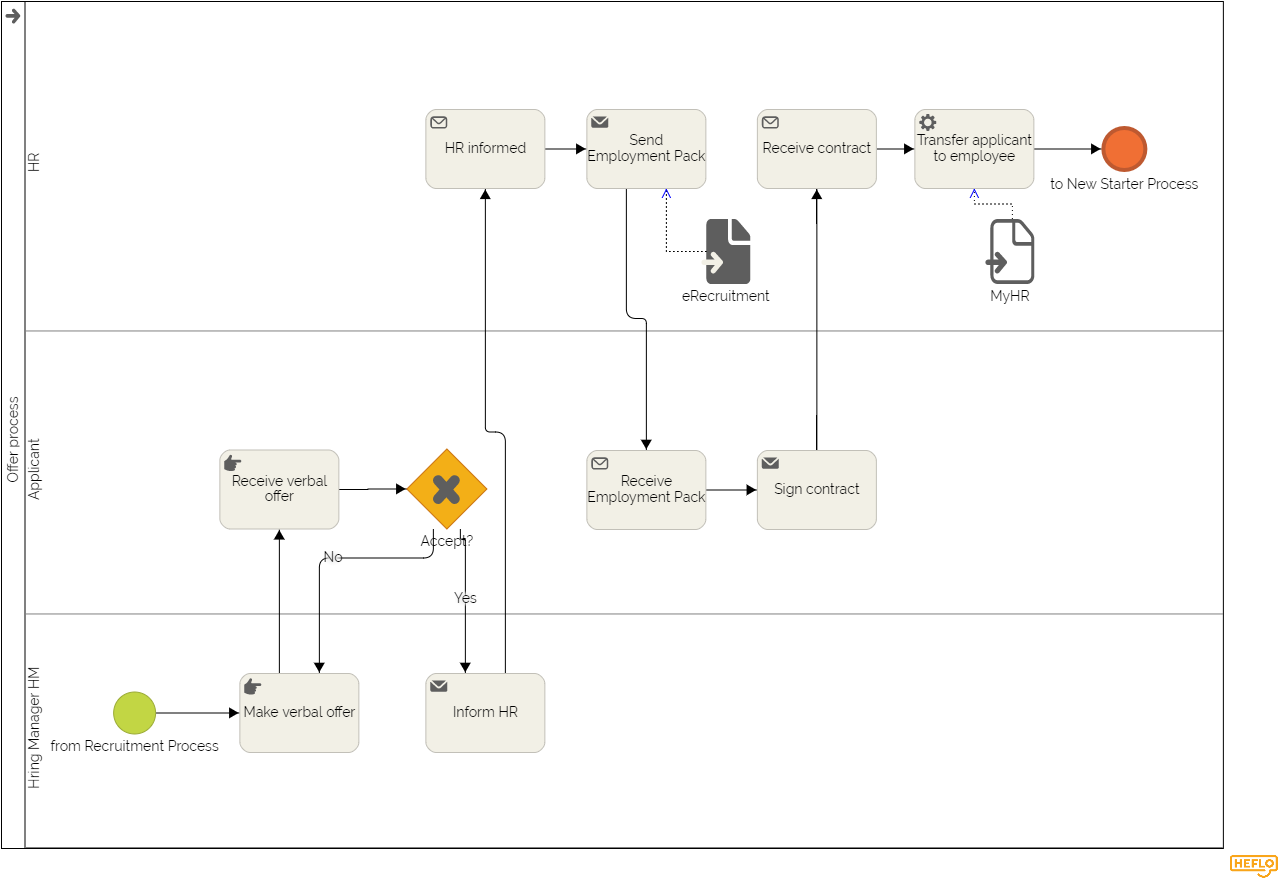HR Processes Analysis
A major benefit of an HR Information System (HRIS) is that it can automate many HR processes, leaving the HR team to concentrate on more strategic concerns that will add value to the business.
Therefore it is critical to analyse your as-is HR processes and consider the future to-be processes. While the exact functionality of your new HRIS depends on the system you purchase, most deliver the automated processes you identify.
It is a good use of time to arrange workshops with the HR team, and include other business representatives if possible, and go through all the major HR processes you currently perform. A starting list would include:
- Selection and recruitment
- Issue of contracts and offer letters
- Induction
- Probation
- Sickness absence including long-term or absence stages, if you have them
- Annual leave or holiday requests and authorisation
- Other absences requests and authorisation e.g. compassionate leave, Jury Service
- Cancellation of leave requests
- Changes to terms and conditions including authorisation
- Letters for variation of contracts
- Maternity and paternity processes, including Keeping in Touch day requests
- Disciplinary processes
- Grievance processes
- Flexible working requests
- Learning & Development requests, booking and record of attendance/achievement
- Appraisal and performance management processes
- Leaver process
One useful way to document the processes is through the use of Business Process Model and Notation or BPMN diagrams. These are commonly used tools by Business Analysts and helpful software is available free or at relatively low cost - see our Links for recommendations.
An example of a BPMN diagram Offer Process is:

Once the HR processes have been analysed and the to-be processes documented, the next task is to consider how the HRIS can be configured to run the process. Most HRIS will send out automated emails to Line Managers, HR and Payroll with links to open a series of web browser screens. The data is then stored directly in the HRIS database. Reports can be written to provide Business Intelligence.
If you need support in any of these processes and business analysis, do contact us.
